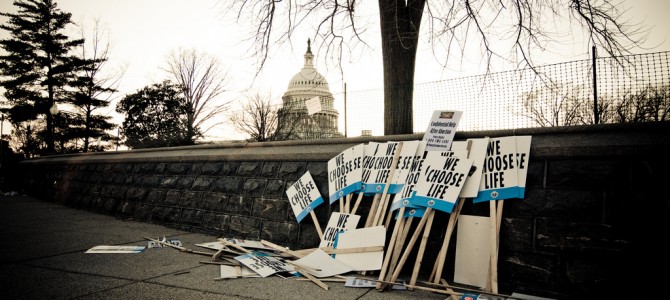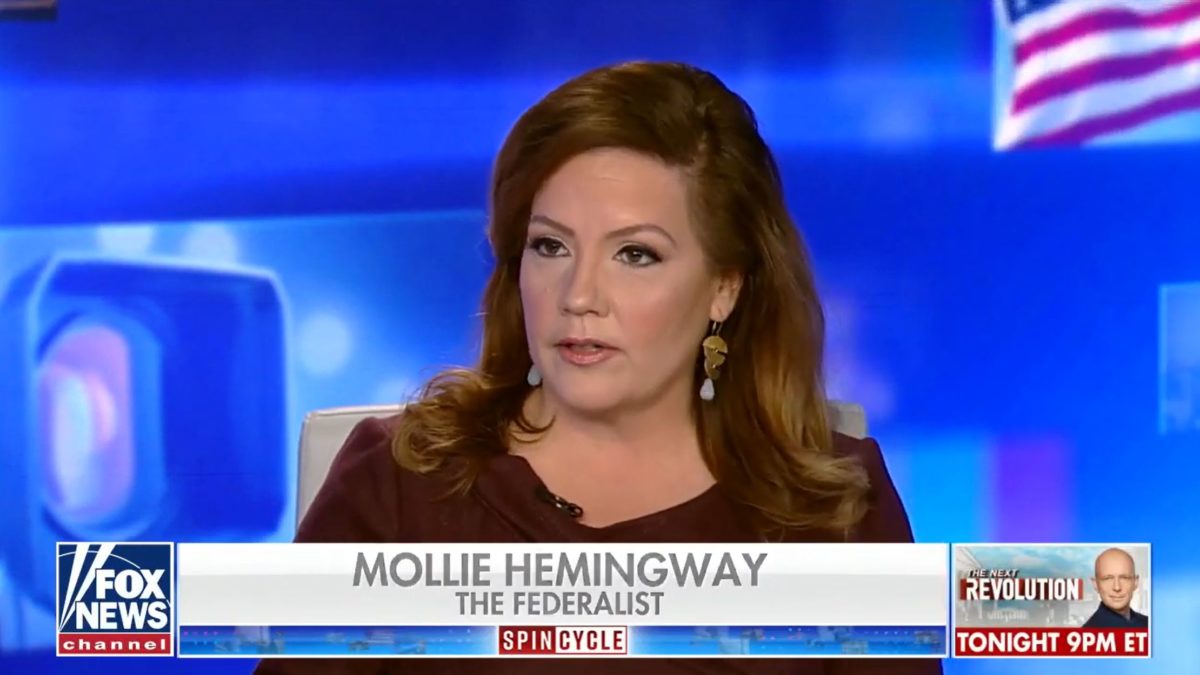
We don’t know if President Obama’s promise to go on “offense” for the remainder of his presidency means he’ll give the Supreme Court another browbeating in tomorrow night’s State of the Union Address. We can be sure, however, that if there is one, the former constitutional law lecturer won’t be admonishing them for failing to do their constitutional duty.
The last major division of The Federalist (essays 78-83) concerns the judiciary. As with James Madison and Alexander Hamilton’s earlier reflections on the legislative and executive branches, the principal theme of these essays is the judiciary’s compatibility with republican principles. All three branches are measured against a two-fold test of republican orthodoxy:
1. Are the officeholders adequately responsible to the people (form)?
2. Is the branch’s structure, powers, and relationship with other branches consistent with the rule of law (substance)?
The judiciary, as Federalist 78 demonstrates, plays a critical role in promoting the rule of law–especially the rule of the fundamental law, the Constitution. In a system where the people have imposed important limits on the power of government (and did so before the adoption of the Bill of Rights), the judiciary must possess and exercise the power to declare laws contrary to these limits unconstitutional by refusing to apply them in cases that come before it.
As Alexander Hamilton acknowledges, this can go wrong in two ways. The court can erroneously uphold unconstitutional laws, allowing the will of the people’s agents (the Congress) to trump that of the people themselves. Alternatively, the court can strike down laws that are actually constitutional, enforcing its own will in the place of the people’s judgment.
Because of his fears of a gross imbalance of power between the (weak) judiciary and (strong) legislature, Hamilton was far more worried about the first case than the second: that the judiciary would be unwilling to upset the Congress by declaring one of its laws unconstitutional. That’s why he stresses the importance of lifetime tenure (in Federalist 78) and a secure salary (in Federalist 79) as critical props for judicial independence and, thereby, the rule of law–not as special perks for judges.
In our day, however, the second problem–a judiciary that finds conflicts between laws and the Constitution where they don’t exist–is at least as important as the first. How this came to be is a story with a number of key twists and turns, but the short version is that Progressive judges began to read the Bill of Rights and, critically, the 14th Amendment, in ways that went far beyond (and, indeed, often contrary to) their original intent, especially in applying the former to the states through the latter.
Thursday will be the 42nd anniversary of the most notorious instance of this judicial usurpation, Roe v. Wade, where the Supreme Court created, whole cloth, a constitutional right to an abortion, with limits so narrow and boundaries so permeable that it took the Court two tries to uphold a ban on aptly-named partial-birth abortions.
One could attempt to engage the constitutional argument for a right to an abortion presented in Roe v. Wade except that there isn’t one. The Court simply asserted that the “right to privacy” it had discovered in the shadows of various amendments in an earlier case (Griswold v. Connecticut) was broad enough to include the deliberate killing of a prenatal human being.
The consequences have been as grisly as one might have predicted. Although the number of pre-Roe abortions is a matter of dispute, there is no question that the first years after Roe brought about a significant (and, perhaps, several-fold) increase. Moreover, while Roe was handed down during a period where public support for legalized abortion was increasing, it has since prevented the codification of an important shift in public opinion in the opposite direction, thereby continuing to add to the number of abortions each year. Note to Justices weighing the politics of nationalizing gay marriage: History can sometimes reverse course.
The effort to overturn Roe v. Wade will, no doubt, be part of the subtext at least of the upcoming presidential election campaign whenever the discussion of Supreme Court appointments comes up. But that we may have some further sense of why this is not a tangential matter, it is helpful to return to Hamilton’s discussion of the republicanism of the judiciary.
To be republican, the judicial branch must promote the rule of law. This it manifestly failed to do in Roe v. Wade. But it must also be accountable for its failure to exercise its constitutional responsibilities.
Although under the Constitution bad Supreme Court rulings can be undone by constitutional amendment and prevented by congressional limitations on the Court’s appellate jurisdiction (see Article III, Section 2), the only tool of accountability for individual justices is impeachment.
The history of Supreme Court impeachments is short. Samuel Chase, accused by Jeffersonian Republicans of “arbitrary, oppressive, and unjust” partisan behavior from the bench, was impeached by the House in 1804 only to be acquitted the next year by a bipartisan coalition of Republican and Federalist senators. The end.
We may, of course, be grateful for the fact that no Supreme Court Justice has (been discovered to have) committed the sorts of offenses (like taking bribes) that have led, over the years, to the impeachment and removal of eight lower court federal judges and the resignation of three more.
The partisan stain of the Chase proceedings (observers then and since believed it to be a test case for the impeachment of Chief Justice John Marshall) seems to have confined the impeachment power to limits too narrow to satisfy its original republican purpose. President Thomas Jefferson, whose own role in and hopes for the Chase impeachment are a matter of scholarly dispute, wrote three years later: “impeachment is a farce which will not be tried again”–correct to date, at least regarding Supreme Court Justices.
Yet a consideration of Hamilton’s argument of Federalist 79 is helpful in determining what went wrong in that particular case and how a republican understanding of the proper employment of impeachment might be revived in our day.
Hamilton begins the essay by noting that given “[A] power over a man’s subsistence amounts to a power over his will,” it is essential, if it is to reap the republican benefits of an independent judiciary, that a political society provide its judicial officers with the requisite material support. But just as essential as securing a judge’s independence by maintaining “the ground upon which he stands,” is a society’s willingness to employ the counterbalancing instrument of impeachment when justified. Hamilton writes:
The precautions for their responsibility are comprised in the article respecting impeachments. They [federal judges] are liable to be impeached for malconduct by the House of Representatives, and tried by the Senate; and, if convicted, may be dismissed from office, and disqualified for holding any other.
The question of what type of behavior warrants impeachment was one of the more hotly disputed questions of the Constitutional Convention. Upon the urging of George Mason, who rightly contended that there are a multitude of activities that endanger republican regimes, the Convention added “other high Crimes and Misdemeanors” to the original, more specific list of impeachable offenses (“treason and bribery”).
There has been much debate about the meaning of this more ambiguous phrase, a substitute for Mason’s proposed “maladministration,” after Madison argued convincingly that Mason’s proposal would decisively compromise judicial independence. But The Federalist leaves no doubt that it is not limited to indictable offenses. Hamilton, in examining the Senate’s role in the impeachment process, writes in Federalist 65:
A well-constituted court for the trial of impeachments is an object not more to be desired than difficult to be obtained in a government wholly elective. The subjects of its jurisdiction are those offenses which proceed from the misconduct of public men, or, in other words, from the abuse or violation of some public trust. They are of a nature which may with peculiar propriety be denominated POLITICAL, as they relate chiefly to injuries done immediately to the society itself.
It is clear from The Federalist and from the broader context of the founding-era debate over impeachment, that it was not meant to be a means of resolving normal or even particularly intense or important political disputes. But it is equally true that violations of the public trust need not involve criminal activity. For impeachment to play its intended role in securing the accountability of officeholders–particularly unelected judges–it would have to be available for cases of gross misconduct measured against the constitutional duties of their office.
Roe v. Wade is no ordinary case of improper judicial activism. The “misconduct” of the Justices responsible for the decision is emphatically not the result of their landing on the wrong side of a public policy dispute. It is rather that they have landed on the wrong side of the first principle of political justice (“all men are created equal”) in the most decisive way: by requiring the people of each state to sanction the arbitrary killing of unborn human beings. The “logic” of Roe v. Wade does not stop until (as Hadley Arkes has decisively shown) it has devoured the entire notion of natural rights, the protection of which, according to the Declaration of Independence, is the essential task of (our) government–the reason for the framing of the Constitution and the case against its predecessor, the Articles of Confederation. However prudential considerations might shape our actual political behavior (one need not impeach every time it is merited), in our republic, at least, the Roe v. Wade decision must be an impeachable offense.
The intransigence of President Obama and the general placidity of the Congress have brought attention to a problem deeper and more pervasive than we typically imagine: our near abandonment of so many of the “constitutional means” granted to federal officeholders for maintaining the separation of powers and enforcing the limits of the Constitution. Recovering those means does not mean using them in needlessly divisive, foolish, or partisan ways (an outcome likewise discouraged by Hamilton in Federalist 65). But it does require accepting, once again, the logic of our republican system: that every officeholder is accountable for fulfilling his oath to uphold the Constitution.









